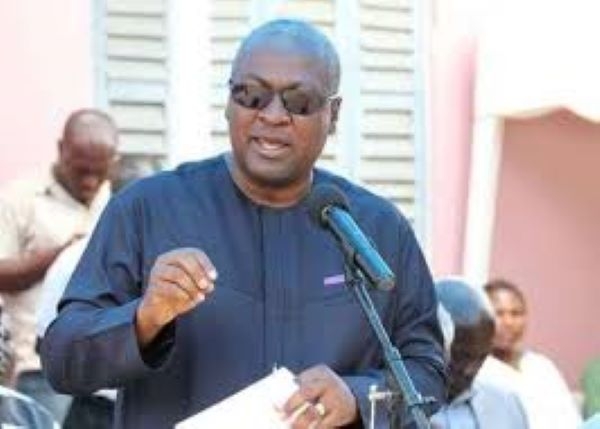24-Hour economy: Mahama to introduce time-of-use tariff to ensure affordable power for businesses
 John Mahama
John Mahama
Flagbearer of the main opposition National Democratic Congress (NDC), John Dramani Mahama, has pledged to establish a robust and reliable power system to underpin his ambitious 24-hour economy agenda if elected in the upcoming December 7 general elections.
This policy, aimed at driving economic growth, seeks to keep businesses operational around the clock, boosting productivity and accessibility for consumers.
Speaking to energy sector stakeholders in Accra, Mr. Mahama stressed his administration’s focus on expanding clean energy as part of a broader energy transition strategy.
He outlined plans to align power generation with forecasted demand while addressing reserve requirements to ensure a stable and uninterrupted electricity supply.
“We will systematically match generation with forecasted demand and address reserve requirements. The new administration will increase clean energy consumption in line with our energy transition agenda and provide the necessary fiscal and regulatory incentives to attain a 10 per cent share of non-hydro renewable energy in our generation mix,” Mr. Mahama assured.
The NDC flagbearer also proposed introducing a time-of-use tariff system to offer businesses stable and affordable power, enabling continuous operations. He noted that this approach would be crucial in realizing the 24-hour economy vision.
“Other key interventions would include the implementation of a time-of-use tariff to provide affordable and stable electric power for businesses to operate around the clock,” he added.
Additionally, the former president committed to managing the Energy Sector Levies Act (ESLA) revenues transparently and adhering to the cash waterfall mechanism to ensure accountability in the energy sector.
He further promised to partner with local entrepreneurs to reduce technical and commercial losses, boosting system efficiency.
“Another [intervention] would be to transparently manage the ESLA revenues and strictly adhere to the principles of the cash waterfall mechanism, significantly reduce technical distribution and commercial losses in the energy sector, in partnership with local entrepreneurs,” Mahama stated.
Source: classfmonline.com
Trending News

Hisense Ghana donates ultrasound machine to Komfo Anokye Teaching Hospital to boost diagnostic services
05:45
Progressive Alliance for Ghana congratulates Black Stars on World Cup qualification
15:10
Galamsey in Tano North is new and unheard of – Royal Family
02:12
13 communities in Central Gonja district connected to national grid
01:15
PNC Youth Organiser expresses disappointment in military failure in galamsey fight
14:19
Hopeson Adoye calls for radical measures to curb galamsey
14:11
Dr Adutwum stands tall among NPP presidential candidates – Kusi Boafo
17:25
Dr. Kingsley Agyemang to deliver keynote address at the 5th FALAS Continental Conference in Addis Ababa
16:39
Chiefs hold the key to ending illegal mining – Kwadwo Peprah to gov't
15:59
Margins ID Group supports 13th Oguaa breast cancer campaign durbar, calls for end to stigma
02:55




